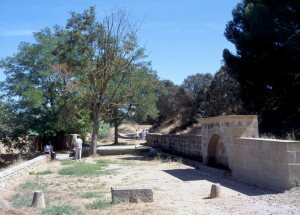Félix de Azara (1742-1821) was born into an illustrious family in the village of Barbuñales and went on to become famous as a soldier, naval officer, engineer, explorer and the most important naturalist of his era. His travels as a soldier took him to South America where his interest in the environment around him first began. He took daily interest in the changes in the sky, noted down geographical data and took great care of the plants, animals and peoples of those distant lands. Although he was self-taught, his theories were a direct precedent of those presented by Charles Darwin in his book, “On the Origin of Species”. Around the year 1815 he retired to this house where he revised some of his written work from his travels through the Americas.
Although Felix was the most prominent member of this illustrious family as a renowned soldier, engineer, naturalist, explorer and scientist, his brothers and sisters were also highly regarded. Eustaquio was bishop of Ibiza and Barcelona; Lorenzo was professor of Huesca university and dean of the city council and Mateo worked as auditor for the Barcelona Assembly. Mariana gave birth to Eusebio (Minister of State) Dionisio (a cardinal) and Anselmo (a famous sailor.) Another brother, José Nicolás was probably the most astute diplomat in the whole of Europe.
José Nicolás de Azara (1730-1804) is recognised as being one of the bravest diplomats of Kings Carlos III and Carlos IV. He was friends with no less than four popes, ambassador in Napoleon’s court, patron of the painter, Anton Raphael Mengs and was acclaimed in Rome for his efforts to protect the city from the threat of the Napoleonic armies.
Upon his retirement to Barbuñales he wrote;
“ …I am slowly falling in love with this country and this life. I eat and sleep with a calm I have never known and take magnificent walks, almost always on our own land. Around a mile from our house we have one of the oldest estates in Aragon, Lizana, where there are olive groves, fulling mills, farms and many sheep. I left here so small that no-one remembers me. If I can collect the antiquities that I left behind in Italy this will be my final resting place, because the sky is much closer to Barbuñales than to Paris or Madrid.” 17th May 1800.
José Nicolás de Azara, first Marquis of Nibbiano, died in Paris in 1804 and his remains rest in the parish church of Barbuñales. The hearse that carried his body to his final place of burial still stands on the patio of the Azara family house.











